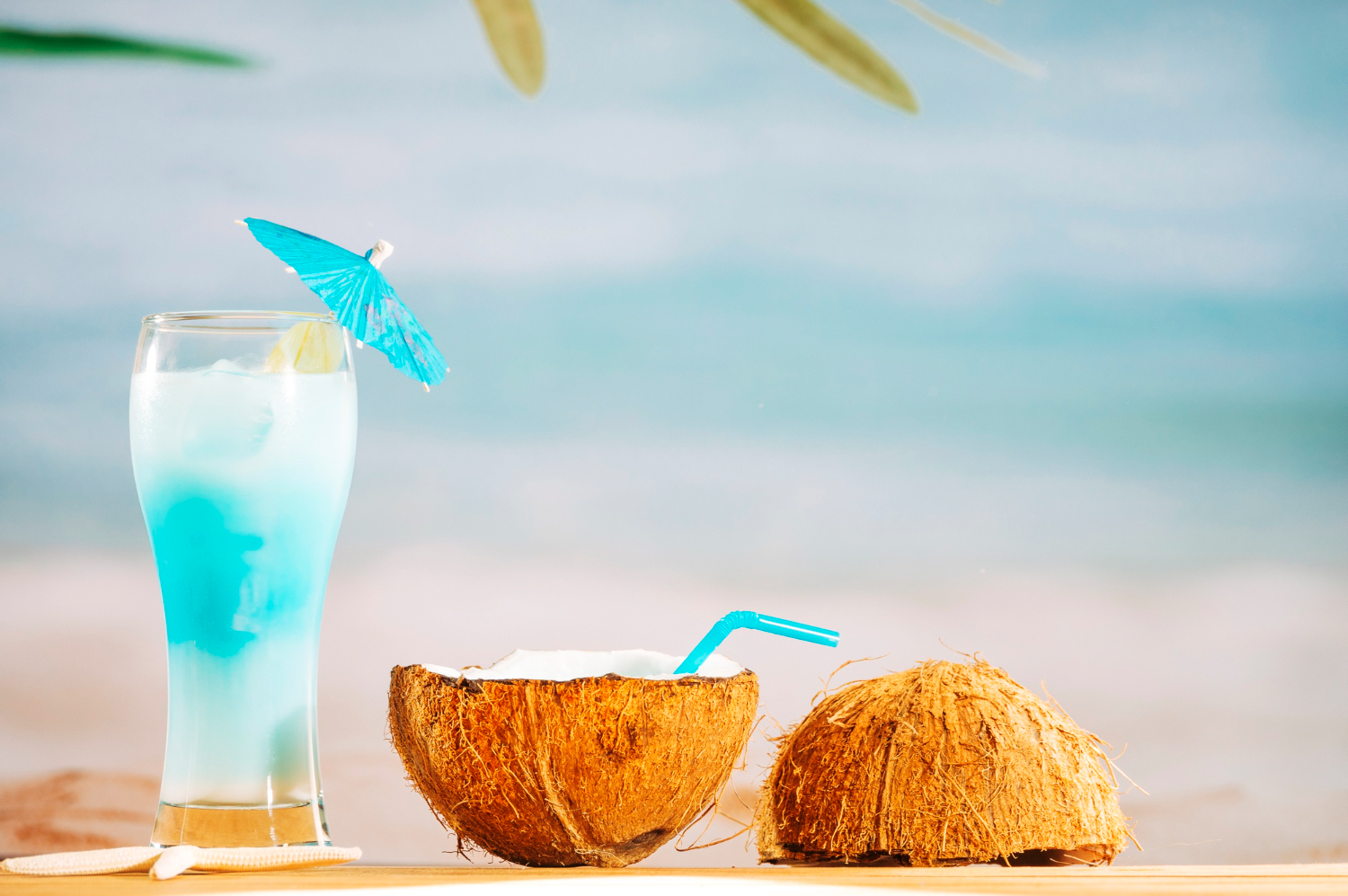
In this article
Coconut water, the clear fluid inside young coconuts (Cocos nucifera), transforms as the coconut matures, with some of it turning into the coconut meat we often enjoy. Beyond its refreshing taste, coconut water is packed with antioxidants and electrolytes that support hydration, making it a valuable addition to your diet. However, it’s essential to know that coconut water may not be suitable for everyone.
Provides Hydration
Coconut water is an excellent source of hydration, offering not just water but also carbohydrates and essential electrolytes like sodium, potassium, magnesium, and chloride. These electrolytes are crucial for maintaining fluid balance in the body, regulating the movement of water into and out of cells, and ensuring proper pH balance, blood pressure, and heart rate.
Dehydration can occur due to an imbalance in water or electrolytes, especially if you’re experiencing conditions like vomiting or diarrhea, or if you’re losing fluids through excessive sweating during intense exercise or in hot climates. Coconut water is often recommended for rehydration after such instances because of its rich electrolyte content. While it’s hydrating, more research is needed to confirm if coconut water is more effective than plain water for treating dehydration in clinical settings.
Coconut Water vs. Coconut Milk
It’s important to distinguish between coconut water and coconut milk. Coconut water is the clear liquid from young coconuts, whereas coconut milk is made from the water and the meat, resulting in a thicker, creamier, and higher-fat product.
May Support Athletic Performance and Recovery
Research suggests that consuming coconut water before or after exercise could benefit athletic performance and recovery more than water or traditional sports drinks. One study found that drinking coconut water before exercising in a hot environment slightly extended the time it took for participants to reach exhaustion compared to plain water, albeit by a small margin.
This benefit might be because coconut water contains potassium, a key electrolyte, although sodium is the primary electrolyte lost through sweat. An older study comparing plain water, sports drinks, coconut water, and sodium-enriched coconut water found that the latter two offered superior rehydration after exercise. Notably, sodium-enriched coconut water caused fewer side effects such as nausea.
Coconut water also provides a natural source of carbohydrates, which are essential for quick energy during strenuous activities. However, some commercial coconut water products contain added sugars, so it’s important to choose unsweetened options.
Could Lower Blood Pressure
Coconut water may help in managing blood pressure due to its high potassium content, a mineral that helps remove excess sodium from the body and ease tension in blood vessel walls. A small study on individuals with high blood pressure found that drinking coconut water daily for two weeks significantly lowered systolic blood pressure.
Further research on animals suggests that coconut water might act as a natural diuretic, increasing urine output without reducing electrolyte levels. Diuretics are often used to treat hypertension by removing excess sodium from the body. However, more extensive and long-term studies are needed to firmly establish coconut water as a reliable treatment for high blood pressure.
May Help Prevent Kidney Stones
Potassium-rich foods and beverages like coconut water can lower the risk of kidney stones by reducing the amount of calcium released in the urine. Observational studies have shown that higher potassium intake correlates with a significantly lower risk of developing kidney stones. Additionally, research indicates that drinking coconut water can increase potassium, chloride, and citrate levels in the urine, all of which help reduce kidney stone formation.
Nutrition
Coconut water is low in calories and free of fat, offering small amounts of hydrating electrolytes. An 8-ounce serving of unsweetened coconut water typically provides:
- Calories: 43
- Fat: 0 grams
- Protein: 0.5 grams
- Carbohydrates: 10.2 grams
- Fiber: 0 grams
- Added sugars: 0 grams
- Sodium: 62.4 milligrams (2.7% DV)
- Potassium: 396 milligrams (8.4% DV)
Compared to beverages like Gatorade or Pedialyte, coconut water contains significantly less sodium but still offers a good electrolyte balance for hydration.
Risks of Coconut Water
While generally safe, coconut water may not be suitable for everyone. Those with a coconut or tree nut allergy, individuals on blood pressure medications or potassium-sparing diuretics, and people with chronic kidney disease may need to limit or avoid coconut water. Additionally, if you’re on a low-carb diet, the natural sugars in coconut water could be a concern.
Tips for Consuming Coconut Water
Coconut water is naturally sweet and should be chosen in its unsweetened form to avoid added sugars. Check labels to ensure the product contains no additional sweeteners. While coconut water is hydrating, it shouldn’t replace plain water entirely. Instead, mix it with water, use it in smoothies, or freeze it into ice cubes for a refreshing addition to drinks.
The Takeaway
Coconut water offers numerous health benefits, from hydration and athletic performance support to potential blood pressure and kidney stone prevention. However, it’s crucial to consume it appropriately and consider any personal health conditions or dietary restrictions. By incorporating coconut water wisely, you can enjoy its refreshing taste and health advantages
A Quick Review
Coconut water is a hydrating beverage rich in antioxidants and electrolytes like potassium, sodium, and magnesium. It supports hydration, may aid in athletic performance and recovery, could help manage blood pressure, and might reduce the risk of kidney stones. However, it should be consumed cautiously by individuals with specific health conditions or dietary restrictions
FAQS
What are the primary health benefits of coconut water?
Coconut water supports hydration, athletic performance, and recovery, may help manage blood pressure, and could lower the risk of kidney stones.
How does coconut water compare to coconut milk?
Coconut water is a clear, low-calorie liquid from young coconuts, while coconut milk is thicker, creamier, and higher in fat, made from coconut water and meat.
Is coconut water suitable for everyone?
Coconut water is generally safe but may not be suitable for people with coconut allergies, those on certain medications, or individuals with chronic kidney disease.
Can coconut water help with dehydration?
Coconut water is hydrating and rich in electrolytes, making it beneficial for rehydration, though it may not be more effective than plain water.
How should I consume coconut water?
Enjoy it plain, mix it with water, use it in smoothies, or freeze it into ice cubes for added flavor to drinks.












